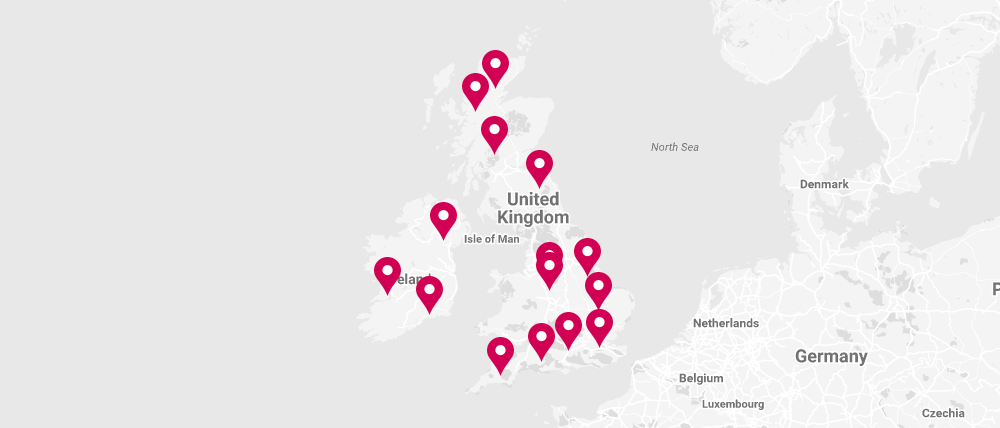
Resources
How to Manage Employees’ Return to Work After Injury or Sickness
- 15th January
Although every employer takes steps to protect the safety and wellbeing of their workforce, the simple truth is that it’s impossible to completely avoid sick leave. After all, illness and injury can strike at any time in or out of work, meaning your staff may need to take some time off to recuperate. Sporadic absences like this are only to be expected, but when the sickness or injury is more serious, it can result in a staff member having to take an extended period away from work.
Return to work management involves practical planning, communication and sometimes legal obligations, especially when dealing with long term sickness absence, disability or accommodating adjustments during the recovery period after a work-related injury.
At Lanes Group, we understand that physically demanding roles can increase the likelihood of staff taking time off due to injury or illness. We also know how much value injured or sick employees place on being supported during their return. Whether it’s a phased return to work after a back injury or adjustments following surgery, a structured process benefits everyone.
Employers have a legal requirement to make reasonable adjustments where appropriate and must handle an employee’s return with careful consideration to avoid unfair dismissal, discrimination or breaches of employment rights.
Here’s how to manage employees’ return to work after injury or sickness, using best practice guidance that supports both your business and the individual’s health and safety.
Stay in regular contact with absent employees
Maintaining communication during a staff member’s absence shows support and helps build trust. Staying in touch also allows line managers to better understand the nature of the employee’s health, any progress they’re making and what work adjustments might be necessary.
It’s important not to pressure employees for private health information. Instead, take a flexible and respectful approach to contact - whether that’s via email, phone or written correspondence - and always consider the individual circumstances. Regular check-ins help employees feel valued, reduce feelings of isolation and may even aid their recovery.
This contact can also help the employer identify any underlying problems affecting the employee’s return to work - whether those are related to physical illness, mental health or work-related stress and begin planning appropriate support measures.
Offer support measures based on a solid return to work plan
When managing a return to work after illness or injury, especially after a prolonged absence, it’s not enough to simply wait for a fit note and expect employees to resume normal duties. The return to work process should include a structured plan shaped by input from the employee, their healthcare professional and occupational health if needed.
If the employee has been off work for more than four weeks, a referral to occupational health may be necessary. This can help assess their capability, the need for adjustments and whether a return to work after surgery risk assessment is required.
Start with a return to work interview. This meeting allows the line manager to discuss:
- The worker’s view of their own needs and capability, as well as the opinions of their doctors and other relevant medical professionals
- Potential barriers that could prevent the staff member from working safely or effectively as a result of their condition
- Any possible side effects of their ongoing treatment or medication that could have an effect on their work
- Potential allowances and adjustments that could be made to overcome any hurdles
- How long the staff member estimates they will continue to require this additional support
The nature of reasonable adjustments you may need to make will depend on the type of work the individual is required to perform, but common examples include:
- Special equipment such as ergonomic furniture, ramps or better lighting
- Temporary changes to working hours, shifts or tasks
- Modified job duties or a change in location (e.g. closer to washing and toilet facilities)
- Closer supervision or the offer of a workplace buddy
- Additional training, especially for those returning after a long term absence
All of these steps can make it easier for a worker to regain their skills and confidence and get reacquainted with the rhythms of the job - while also benefiting from the feeling that their employer is behind them, and committed to supporting them as individuals.
Consider a phased return to work
A phased return is a helpful option when an employee is recovering but not yet ready to resume full duties. Rather than returning to work full-time immediately, employees may prefer to increase hours worked gradually or start with lighter tasks.
Typical phased return to work options include:
- Working part-time hours initially (e.g. mornings only).
- Avoiding physically demanding duties while recovering from a back injury or surgery.
- Starting on less busy days or outside of peak hours.
- Adjusting the working environment to reduce strain or fatigue.
These arrangements should be adapted to each employee’s health, role and pay expectations. Some may be reluctant to accept reduced hours if it affects their full pay. Others may value the flexibility and prefer a slower return to their usual responsibilities.
A phased return after illness or injury is not mandatory, but it can prevent setbacks and long-term complications. Employers must weigh the benefits against operational demands and communicate openly with the employee throughout.
Keep a proper record of sickness absence
Every business keeps records of who’s off sick for statutory pay purposes, but there are ways to make intelligent use of this information to deliver the best possible support for your staff.
Having a reliable record of sickness absence can help you keep a close eye on which staff members are having regular issues with ill health, or whose frequent absences may suggest lifestyle difficulties or the onset of disability, allowing you to provide them with any support or special accommodations they might need.
Analysing this information can also help your company to accurately assess how effective the support you are providing for ill or injured staff really is, and benchmark this performance against industry standards to make sure you are doing the best you can do on this important measure.
How Lanes support our people
At Lanes, supporting our people back to work after illness, injury or time away isn’t a formality - it’s part of who we are. From the moment we started in 1992 with just 30 staff and a single depot, our focus has always been on looking after the people who keep the business running. That hasn’t changed, even as we’ve grown into a national employer with thousands of colleagues across the UK.
We understand that returning to work can be daunting, especially after a period of absence linked to health problems or personal difficulties. That’s why we take care to approach each person’s situation with sensitivity and respect. Whether someone needs a phased return, adjustments to their working hours or help regaining confidence, we work with them to find a path that feels right. It’s not just about getting back to the job - it’s about doing so safely, comfortably and with the right support in place.
That includes mental health support. Our Mental Wellbeing Champions are available to talk, listen and offer guidance without judgement. We also provide access to expert resources that can help staff manage work-related stress, anxiety or emotional pressures they may face after being off sick. Mental health matters at Lanes, and we treat it with the same care and attention as physical recovery.
The stories shared by our people speak for themselves. We’ve seen team members bounce back after serious injury, deal with long-term conditions, or come through difficult personal circumstances - all with the backing of supportive colleagues and a workplace that doesn’t turn away when things get hard. From field teams to depot staff and beyond, no one comes back to work alone.
Looking for a supportive and friendly place to work? Explore our open roles.
Our Offices, Divisions & Depots


Lanes Group Ltd,
17 Parkside Lane, Parkside Industrial Estate, Leeds, LS11 5TD
Lanes Group ltd
Customer Solutions Centre
9 Cambridge Avenue
Slough
SL1 4AY




Our News Feeds
Andy’s jobs journey reaches fulfilment down in the sewers
Andy led the Lanes emergency team, working on behalf of Thames Water, that first responded to the discovery of the Islington concreteberg.
Why Lanes Group - and the drainage sector - is perfect for those looking for a new career
Find out more about what makes the drainage sector such an attractive proposition for those looking for a change in career.
Where to start when making a career change
Let us help you understand your options when it comes to changing careers
How to successfully apply for a role as a Lanes Group CCTV engineer
Find out more about what we're looking for in our CCTV engineers, and how to maximise your chances of securing a role with Lanes Group.
What it’s actually like to work in the drainage industry
In this article, we look at the many great things about working in the sector and show you what it’s really like to have a career in this growing sector, while busting a fair few myths in the process.
Vicky has perfect role keeping online sales flowing
Personality, determination and a very good understanding of the drainage industry – all qualities that Vicky Smith puts to excellent use as an online sales executive at Lanes Group plc.